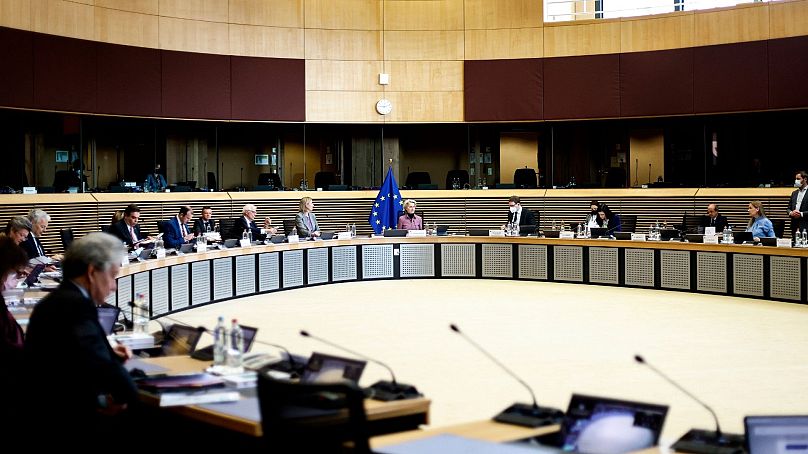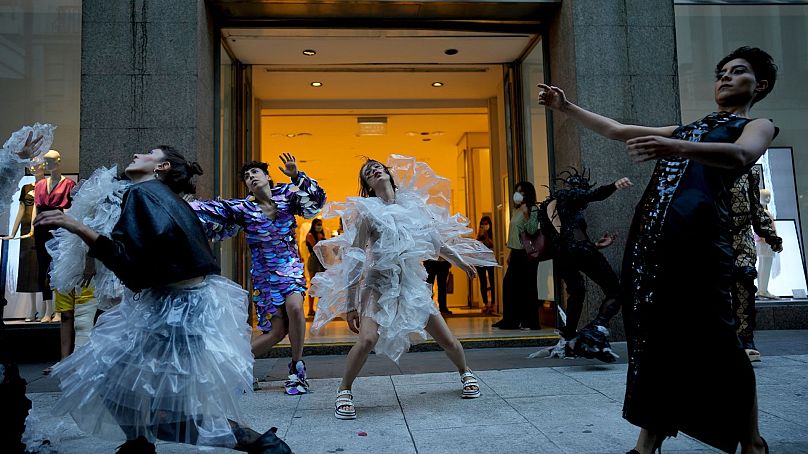This week, the European Union becomes the first world region to recognise the link between fast fashion and fossil fuels.
Nusa Urbancic is Campaigns Director at the Changing Markets Foundation, which partners with NGOs to expose irresponsible corporate practices and drive change towards a more sustainable economy. Here she gives us her take on the new
 ADVERTISEMENT
ADVERTISEMENT
 ADVERTISEMENT
ADVERTISEMENT
Let me tell you a dirty little secret: most of the clothes on your back are essentially oil and gas. Fossil fuels are at the heart of fast fashion, its business model and mountains of waste.
The story of fast fashion heats up in the year 2000, when polyester overtook cotton as the most commonly used fibre. Cheap and adaptable, it is now used in two thirds of all textiles. Between 2000 and 2014, clothing production doubled, with the average consumer now buying 60 per cent more clothing compared to 15 years ago, while keeping them half as long. Because it is so cheap, and hard to recycle, most of these clothes end up as waste, burned or buried.
But fashion brands successfully dodged regulation for decades by relying on weak voluntary schemes and other greenwash. This is about to change.
This week, the EU became the first world region to recognise the link between fast fashion and fossil fuels and announce ambitious legislation to make fashion more circular.
We will have to wait until more details emerge in 2023, but the centrepiece of its plans is an EU-wide Extended Producer Responsibility scheme. This will make fashion brands, like Boohoo, H&M and Zara, pay a waste fee for every item they sell.
The less ecological the item, the higher the fee.
If done well, this will boost textile reuse, recycling and significantly reduce waste. As Changing Markets Foundation’s recent report shows, this fee must be accompanied by ambitious reuse and recycling targets, as well as Ecodesign criteria, measures EU officials promised will be tabled in detail in 2024.
What happens to unsold items and why are they so damaging to the environment?
Officials are also looking to ban the destruction of unsold items and improve rules on exports of textile waste, which reached 1.4 million tonnes in 2020. Many of these used clothes currently end up in second-hand clothing markets in countries like Ghana.
But of the 15 million garments that are shipped to Ghana every week, an estimated 40 per cent are worthless on arrival, and end up in giant burning landfills or polluting the country's rivers and beaches.
Well-meaning Europeans who donate their clothes to charity may in fact be contributing to pollution problems elsewhere. So I welcome that officials will now start developing criteria to distinguish between waste and second-hand textile products and also increasing transparency in the global trade in used textiles.
Greenwashing is still a huge problem we have to tackle
The European Commission is also promising to crack down on greenwashing, which is rife in the fashion industry. Our investigation last year has shown that a shocking 59 per cent of their green claims are false or misleading. So we recently launched a website, www.greenwash.com, to track the worst examples.
One such tactic is fashion’s growing trend of turning waste plastic bottles into clothes. What they are not telling us is that this fad is a one way ticket to landfill and incineration.
Happily, EU officials have seen through this trick, calling it a growing concern, and will encourage brands to focus their creativity and investment to fibre-to-fibre recycling, rather than relying on another sector’s waste. European start-ups like Renewcell point the way forward.
Fast fashion brands have been selling us the illusion of sustainability for too long and will probably fight this move by EU officials with all they’ve got.
But European consumers want better, longer-lasting clothes and European brands have the resources and the means to make that a reality.












